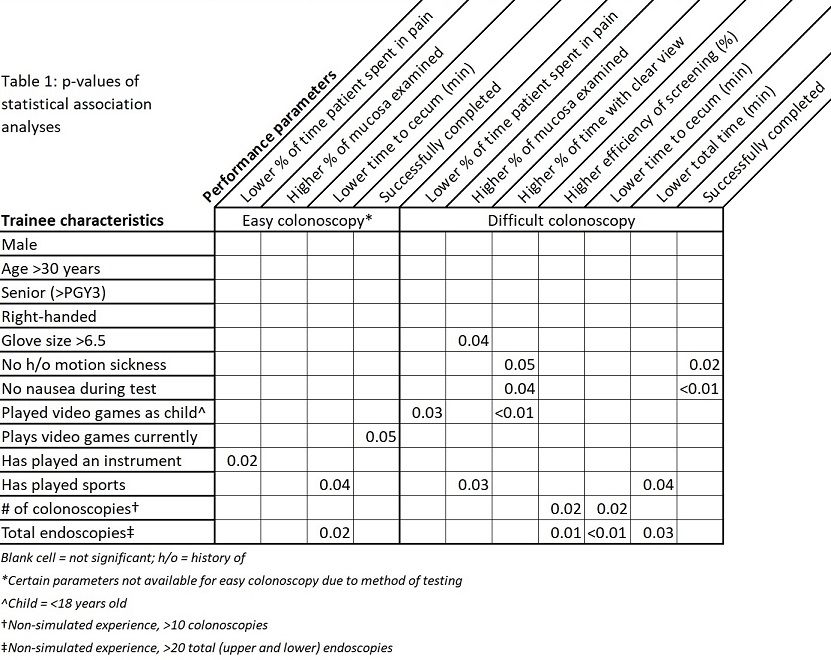PS9-06: SURGICAL TRAINEE FACTORS ASSOCIATED WITH IMPROVED PERFORMANCE ON THE GI MENTOR II SIMULATOR
Michael T Scott, MD1, Kurun Oberoi, MD2, Viktor Dombroskiy, MD1, Aziz Merchant, MD2, Anastasia Kunac2, Nell Maloney Patel, MD1; 1Rutgers Robert Wood Johnson Medical School, 2Rutgers New Jersey Medical School
Introduction: Virtual reality simulation has become an important tool for the surgical trainee. Studies have validated virtual reality (VR) simulation as an effective way to improve surgical skills and have shown that factors such as gender, video game experience, and hand dominance are advantageous in laparoscopic simulation. Therefore, we seek to investigate whether certain individual characteristics predict success with the GI Mentor IITM endoscopic simulator.
Methods: Surgical residents (n=32) in two large academic general surgery programs completed an assessment on the GI Mentor II.™ This included two brief practice modules followed by an “easy” and “difficult” simulated colonoscopy. The simulator recorded several performance parameters. Demographic and individual factors were acquired through a survey (see Table 1). Trainee characteristics and performance parameters were assessed using Chi-squared and Mann-Whitney U analysis. P-value < 0.05 was considered significant.
Results: Details summarized in Table 1.

Conclusions: Several trainee factors were associated with improved simulator performance, including larger glove size, history of playing video games, musical instruments or sports. Trainees who have engaged in these activities may have an advantage over others when examining GI Mentor II performance metrics.
